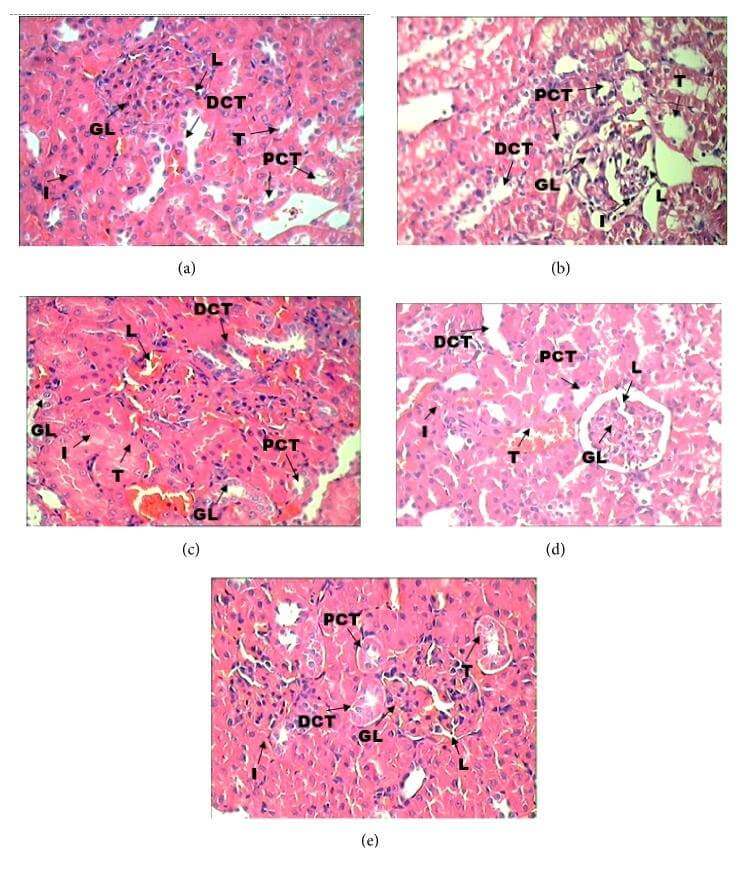

There are many questions related to the impact of Tongkat Ali on liver and kidneys. A healthy liver and kidneys are vital to our health as it performs many functions including filtering toxins, ensuring a healthy digestive system and overall hormonal balance.
Meanwhile, ongoing toxicology studies are being carried out to investigate the side effects of Tongkat Ali on kidneys and liver in the last decade.
In this article, we deep-dive into the side effects of Tongkat Ali on the liver and kidneys, the extent of the health risks, the severity of its potential damages, and how it affects the overall long-term health.
Side effects on the liver and kidneys are two major concerns among users who are taking Tongkat Ali, especially if you are planning to take Tongkat Ali on a long-term basis.
Medications (such as acetaminophen and statins), drugs such as paracetamol and herbs such as Fadogia Agrestis have been known to cause liver inflammation if taken in high doses or for extended periods.
Fadogia Agrestis were recently in the spotlight as they may cause liver and kidney damage based on a 2023 study published in the Scientific African. For those taking Fadogia Tongkat Ali supplements, this poses higher risks, although the side effects on the liver may go undetected for years.
The question is, how severe are the side effects of Tongkat Ali on the liver and kidneys?
Whilst early research studies showed low risks of Tongkat Ali’s effect on the kidney and liver, users are also advised to maintain healthy liver functions by avoiding alcohol and avoiding kidney-damaging or liver-toxic supplements such as Fadogia Agrestis or Horny Goat Weed.
Tongkat Ali is reported to be safe with minimal side effects on liver functions and liver enzymes when consumed in low dosages between 200mg to 400mg daily.
Although the current toxicology safety tests on Tongkat Ali did not indicate any negative effects on liver functions, the risk remains if you are taking Tongkat Ali at high dosages of more than 1,000mg per day for a prolonged period, or if you have a history of liver diseases (eg: fatty liver disease and cirrhosis).
For healthy adults, the side effects on the liver from Tongkat Ali consumption can go undetected as it may not exhibit any early symptoms. To be on the safe side, it is recommended to avoid taking Tongkat Ali and refer to your nearest doctor if you have a history of liver issues such as:
A six-week double blind placebo-controlled study of Tongkat Ali supplementation of 400 mg daily on male athletes showed no effect on liver functions after six weeks. The study published in the International Journal of Preventive Medicine in 2014 confirms that Tongkat Ali did not affect the parameters of liver functions indicated by the level of albumin, globulin, ALT, GGT, and total protein.
In another separate study, the Lethal Dose 50 (LD50) of water-extract Tongkat Ali at 3000 mg/kg showed no change in the liver function, with test results showing no adverse changes at normal daily dose and at chronic use of Tongkat Ali at high dosages.
An oral toxicity study conducted by the Ministry of Health Malaysia in 2020 showed that the effect of Tongkat Ali coffee showed a decrease of liver enzymes and exhibited protective effects attributed to its polyphenol content.
The peer-reviewed study published in Nutrients found “favorable and significant” reductions in liver enzymes (ALP and ALT) and lipid profile indicator (triglyceride) during the 6-month long-term Tongkat Ali study. The prolonged toxicity study at 1,000 mg/kg body weight suggests that Tongkat Ali coffee does not affect liver enzymes and liver functions.
Another study in 2005 conducted by urologist Dr. Ismail Tambi found that Tongkat Ali supplementation had no significant effect on liver enzymes or oxidative stress in healthy men.
Both human and animal toxicity studies showed that Tongkat Ali had no effect on liver enzymes, liver functions or inflammation of the liver to indicate potential damage or liver failure.
This suggests Tongkat Ali is safe when used at 400 mg to 600 mg daily with low risk of liver damage provided you are not diagnosed with chronic liver diseases.
However, it is recommended that individuals who are diagnosed with liver diseases or are taking medication for liver function should avoid Tongkat Ali or consult with a healthcare professional before taking Tongkat Ali.
A 2019 study concluded that Tongkat Ali (Eurycoma Longifolia) is a potential nephroprotective agent against kidney injury or PCM-induced / paracetamol-induced nephrotoxicity. Whilst this study may be applicable to those taking pure Tongkat Ali root extract, most Tongkat Ali supplements in the market are filled with impurities, adulterants, fillers and other unknown substances that may affect your kidneys.
Nephrotoxicity can occur and affect your kidney functions when you are taking paracetamol (PCM) frequently or at high dosages. The effect of Tongkat Ali is positive to those taking paracetamol and acts as a protective agent that prevents kidney injury.
Kidney Health & Nephrotoxicity
Nephrotoxicity occurs when kidney-specific detoxification and excretion do not function optimally due to the damage or destruction of kidney function by exogenous or endogenous toxicants.
The same study published in the Journal of Complementary Medicine in 2019 showed that Tongkat Ali extract at 100 mg/ kg, 200 mg / kg and 400 mg / kg bodyweight may prevent kidney injury as indicated by the urine biochemical analysis and kidney histopathology (shown below).

Kidney histopathology images showing kidney and renal subsections of rats when treated with Tongkat Ali at a various-dosages after 14 days. (a) normal kidney , (b) kidney with Paracetamol (c) kidney treated with Tongkat Ali at 100 mg/kg , d) kidney treated with Tongkat Ali at 200 mg/kg, e) kidney treated with Tongkat Ali at 400 mg/kg. Source: Journal of Complementary Medicine (2019)
Kidney histopathology and serum analysis showed no adverse or acute effects of Tongkat Ali on kidney functions, or kidney inflammations at high dosages. On the contrary, Tongkat Ali showed protective effects on the kidneys. However, long-term study is required to confirm the benefits of Tongkat Ali on the kidneys.
Get more insights and answers on Tongkat Ali’s effects on kidneys and liver.
A human clinical study on male athletes showed that Tongkat Ali does not cause abnormality to the liver enzymes or liver functions based on a 400 mg daily dose for six weeks. Another toxicology study showed no change in liver function at 3000 mg/g body weight, indicating that Tongkat Ali may not damage the liver provided it is taken at the recommended dosage. However, if you are diagnosed with liver diseases such as fatty liver disease, cirrhosis or hepatitis, it is not recommended to take Tongkat Ali more than 3 months.
Adding Fadogia, or consuming Fadogia-Tongkat Ali supplement may be detrimental to your liver. As a single ingredient, Fadogia Agrestis is shown to cause death tissue damage to the liver (necrosis) and massive inflammation of the kidney at 50 mg / kg, 100 mg / kg and 200 mg/ kg of Bodyweight based on a recent study published in July 2023.
Related article: Fadogia’s side effects on liver and kidneys
Yes, a mixed herbal supplement that contains Tongkat Ali, horny goat weed, and palmetto fruit extract showed significant liver injury in a patient-reported case in 2022. This was the first herbal-induced case reported in Australia involving a 40-year old male.
Users are advised from taking mix herbal supplements consisting of Tongkat Ali with other herbs such as Fadogia, Horny Goat Weed or Ashwagandha. Combining Horny Goat Weed or with Tongkat Ali may have detrimental effect on your kidneys and liver, as reported in a patient in Australia who took mixed supplement.
An animal study conducted on paracetamol-induced rats with Tongkat Ali showed positive protective effects on the kidneys at dosages of 100 mg/kg, 200 mg/kg and 400 mg/kg of body weight. This suggests consuming Tongkat Ali with paracetamol may not cause inflammation or tissue death in your kidneys.
Limited studies showed that Tongkat Ali acts as a protective agent against kidney failure, indicated by healthy levels of serum creatinine, blood urea nitrogen, protein, albumin and kidney histopathology analysis based on 100 mg/kg, 200 mg/kg and 400 mg/kg of Tongkat Ali dosage after 14 days.
However, you may still be exposed to the risk of kidney failure if you are taking adulterated Tongkat Ali extract which is filled with impurities. Hence users should choose pure Tongkat Ali root extract that is clinically tested to reduce the risk of kidney failure.
A 6-month toxicity study on Tongkat Ali-infused coffee showed that Tongkat Ali has no adverse effects on the liver at the high dose of 1,000 mg/kg body weight. This suggests long-term consumption of Tongkat Ali has no acute or adverse effects on the liver. However, please monitor for any side effects or symptoms associated with liver functions.
If you are planning to take Tongkat Ali or worried about its side effects on liver, you may refer to a list of liver-related topics and diseases from the US Department of Health and Human Services website. Please click the link below to learn more.
Related Article: List of Liver Diseases
Based on limited human and animal Tongkat Ali studies, Tongkat Ali showed no acute or adverse effects on the kidneys and liver. However, its potential negative impact on liver function and kidneys should not be overlooked. Therefore users are advised to take Tongkat Ali in moderation within the safe dosage of 200mg per day.
Please observe for any early liver symptoms if you are taking Tongkat Ali in high doses. It is advisable to drink plenty of water when taking Tongkat Ali to avoid dehydration which can affect liver functions, especially when you are a regular alcohol user. The best tip is to avoid alcohol when taking Tongkat Ali supplements as the long-term side effects on the liver can be damaging, more so when you are taking Tongkat Ali at high dosages consistently over prolonged periods.
We strongly advise you to seek advice from your nearest doctor or healthcare professionals before consuming Tongkat Ali if you are diagnosed with kidney or liver diseases to avoid any severe side effects.

Naressa Khan contributes regularly on AKARALI. As a researcher and investigative journalist, Naressa is all about creating, deconstructing, and reassembling meaningful content through words and facts. With this approach always in mind, she eagerly explores the nuances in life via the aspects of lifestyle, culture, travel, health, and wellness in Malaysia .
Our articles are third party reviewed by our panel of experts and medical advisors to ensure the facts are accurate and credible. These are validated against multiple source references which include but not limited to research studies, peer-reviewed journals, pre-clinical studies, clinical tests and other credible publications.
Our panel of medical advisors and experts are highly experienced in their individual fields. However, they do not provide any medical advice or recommendations arising from content published in this article.
Disclaimer:
The content published on this website is for educational purposes and should not be viewed, read, or seen as a prescription or constitute any form of medical advice. We recommend you consult your nearest GP or doctors before consuming Tongkat Ali or any products which contain Tongkat Ali. For further information, kindly refer to our Frequently Asked Questions (FAQ) for more information.